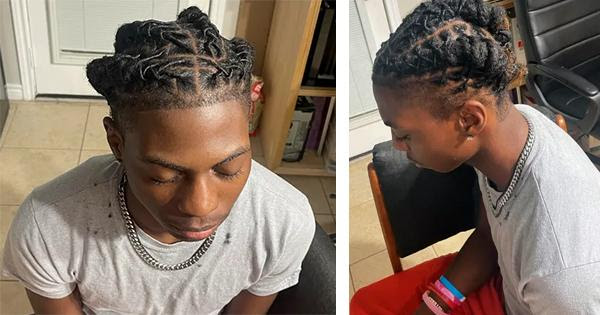
Nationwide — Darryl George, a junior at Barbers Hill High School in Texas, has faced suspension twice in a row due to his hairstyle. Despite the state’s recent anti-discrimination legislation, the school argued that it wasn’t an act of discrimination.
Darryl reportedly received the suspension for sporting twisted dreadlocks tied atop his head, claiming it fell below his eyebrows and ear lobes. His mother, Darresha, revealed that this ordeal has left him in tears as he had to spend eight uncomfortable hours in in-school suspension, according to NBC News.
However, he received the same punishment when he returned to school on Monday.
This incident has ignited a debate over racial hair discrimination in schools and workplaces, with Texas recently enacting the CROWN Act, designed to prevent such discrimination. The CROWN Act, short for “Create a Respectful and Open World for Natural Hair,” prohibits discrimination based on hair texture or protective hairstyles like dreadlocks, braids, and twists. Texas is one of several states that have adopted this act.
Darryl’s family has a long tradition of sporting dreadlocks, viewing them as a symbol of their roots and strength. However, the school argued that his hair length violated their dress code, which mandates hair be above the eyebrows and ear lobes.
The school district, known for its strict dress code policies, justifies its actions by citing a dress code that prohibits male students from having hair below certain lengths. However, legal experts argue that hair length is a part of one’s hairstyle, which should be protected under the law.
This incident has garnered support from young Black people nationwide who have faced similar discrimination over their hair in schools. The CROWN Act seeks to change this by championing the rights of individuals to embrace their natural hair without prejudice.
Moreover, Darryl’s academic progress and extracurricular activities have been affected by these suspensions. His mother said “his grades are suffering, which also means he is not able to play football or participate in any extracurriculars. He was on track to graduate early, and now he is falling behind and will have to work double time just so he can still graduate.”







